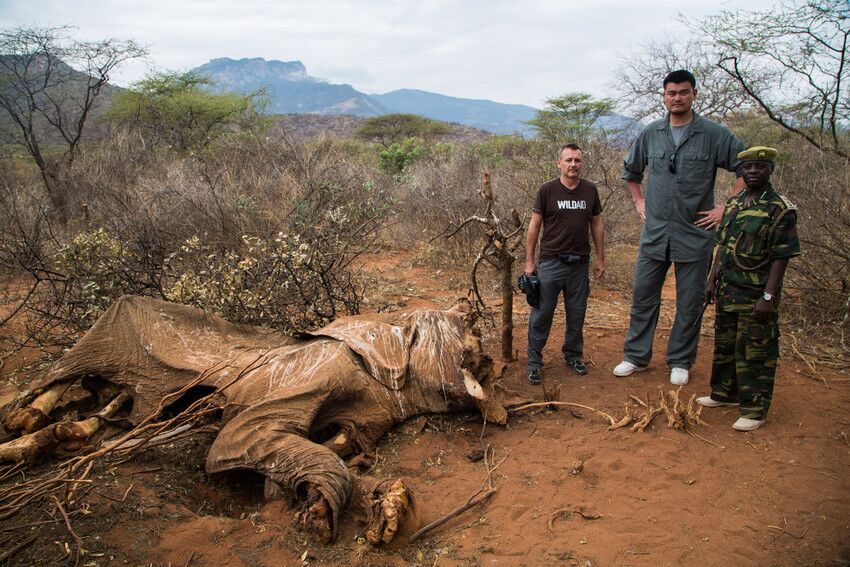Basketball legend Yao Ming has joined an awareness campaign to call on people in China to stop the ivory trade, just days before the country’s ban on elephant ivory is scheduled to kick in.
The campaign, led by international conservation group WildAid, aims to educate the public on the new law and the legal consequences of violating it.

Yao said: “Ivory products are very expensive, not in terms of their prices, but in terms of the lives of the elephants that were killed to make them. Our country has now implemented an ivory ban. Under the law, ivory is no longer a commercial item.”
Formerly the world’s largest market for illegal elephant ivory, China announced last year that it will ban all domestic sales of ivory items beginning December 31. The move was hailed by WildAid CEO Peter Knights as “the greatest single step toward reducing elephant poaching.”
“China’s ban is crucial for elephants,” Knights said. “As the US steps back from its international environmental commitments, Chinese leadership is essential.”
As part of the new policy, 172 ivory carving factories and retail outlets in China are expected to be closed by the end of this month.
Increased awareness
Yao is known for his stance against the ivory trade. In 2014, he suggested at the National People’s Congress that ivory sales be banned in China. That year, China carried out its first ever destruction of seized ivory.

The former NBA star also launched one of the largest-ever awareness campaigns, with Chinese media outlets donating more than US$180 million in media space between 2013 and 2016.
His campaign was joined by domestic and international celebrities, such as David Beckham and Richard Branson. Their efforts are credited with helping to raise awareness among Chinese people that ivory comes from poached elephants.
Chinese retailers are now trying to sell off their products at discounted prices before the ban comes into effect. In 2017, ivory prices around China were reported at 65 per cent less than 2014 peak levels.
The price drop has led to lower profit margins for poachers and smugglers, thereby improving the situation of elephant poaching in some African countries. State-owned Kenya Wildlife Service said that poaching in Kenya was down from 390 elephants killed in 2013 to only 46 last year.
The International Union for Conservation of Nature estimates that the population of African elephants has declined by 111,000 over the last ten years.
Legal in HK
Hong Kong plans to phase out the ivory trade by the end of 2021. The proposal is generally backed by lawmakers from across the political spectrum.
Despite opposition from local traders, the Hong Kong government insists that they will not be compensated when the ban is implemented.
More than 90,000 Hongkongers signed petition supporting ban on city’s #ivory trade. @WildAid and @wwfhk present to lawmakers pic.twitter.com/JSFtt2CrTq
— Richard Pyne (@richardjpyne) March 27, 2017
Japan is now the only major ivory consumer that has yet to show willingness to join the global trend, WildAid said.
“We hope that all remaining legal ivory markets will be shut down as soon as possible,” Knights said. “When the buying stops, the killing can too.”
